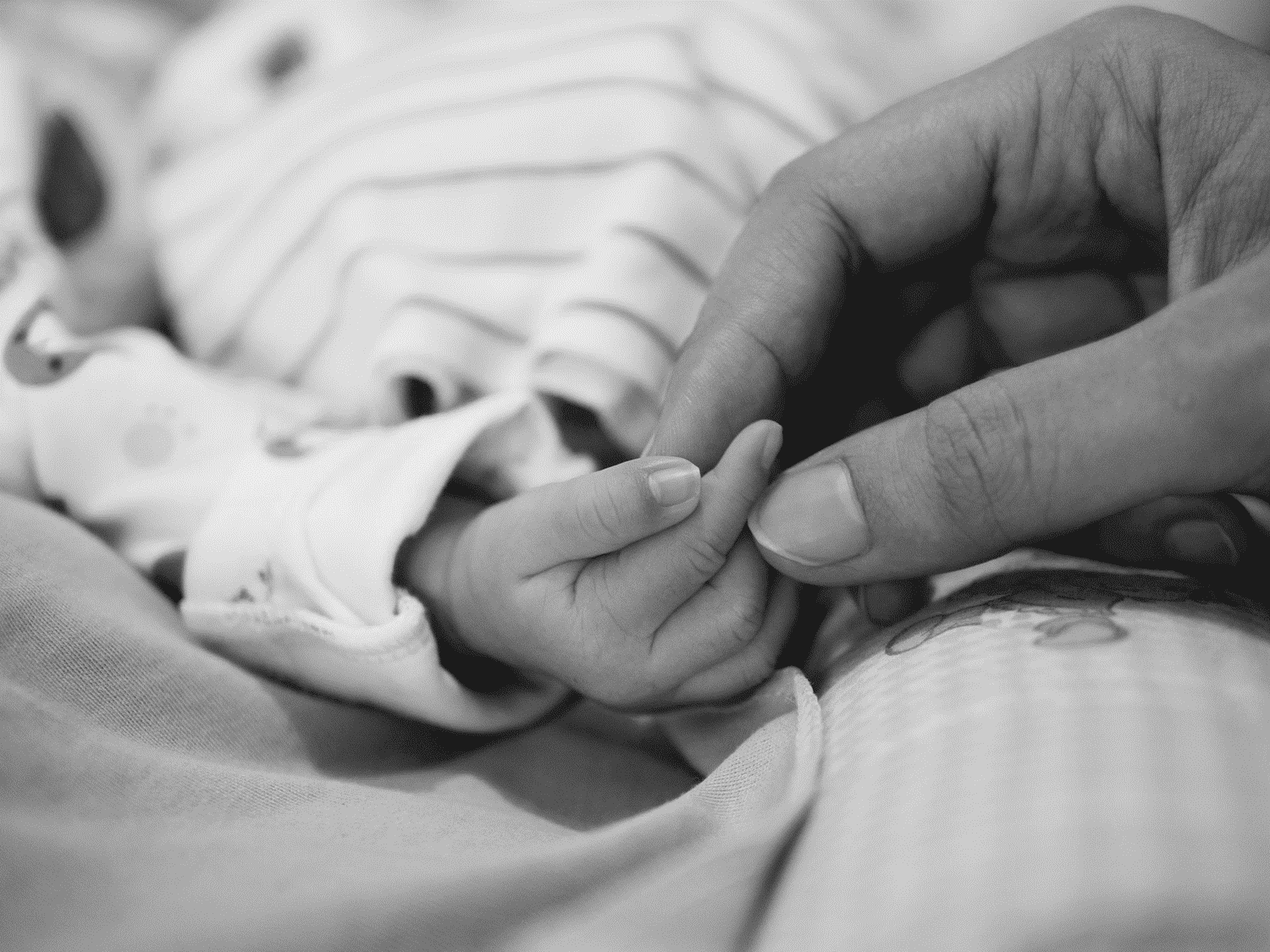The loss of a child is always heart wrenching. More so, when the child is just a newborn or yet-to-be-born.
When celebrity model Chrissy Teigen shared the loss of her first baby conceived naturally due to pregnancy complications on her Instagram, she received an outpouring of love and support from many celebrities and fans sharing their own experiences.
In the middle of night, Chrissy Teigen further took to Twitter to express her shock. “Driving home from the hospital with no baby. How can this be real,” she wrote.
View this post on InstagramA post shared by chrissy teigen (@chrissyteigen) on
A miscarriage can be so sudden, leaving parents reeling from shock, trying to grasp the situation and deal with the grief. Perhaps this explains why many parents find it difficult to share about their loss, making it a hushed topic.
Many mothers blame themselves, second guessing if they could have done something to save their babies. But the first thing you need to know about miscarriages is – it’s not your fault.
Miscarriages happen more often than you think. In Singapore, about 20 per cent of pregnancies end in this way.
Most miscarriages happen during the early stages of pregnancy, during the first 12 weeks and could occur even before the woman knows she’s pregnant, so the numbers could even be higher.
A miscarriage that occurs after 12 weeks is termed as a late miscarriage. Although, this is less likely, it still happens in about 1 per cent of pregnancies here. This is why many couples choose to announce their pregnancy only after they passed 12 weeks.
While we hope parents will never have to go through this traumatic experience, learning more about it here could help answer some of the questions you may have and better prepare you for your pregnancy.
When does it happen?
Early miscarriages usually happen when the embryo has abnormal chromosomes which affect its proper and healthy development into a foetus. This happens naturally and can’t be controlled. It could be be due to problems with the placenta which links the mother’s blood supply to the baby’s.
How does it happen?
According to a study by KK Women’s and Children’s Hospital (KKH) and Duke-NUS Graduate Medical School, the following factors can increase the risk of a miscarriage:
- Older parents (mother above the age of 35 and partner above 40)
- A previous history of miscarriage
- A low blood progesterone (hormonal) level during early pregnancy
- Medical conditions such as uncontrolled severe diabetes, hyperthyroidism, autoimmune disease
- Stress
- Smoking, high levels of caffeine and alcohol intake
Signs of a Miscarriage
These symptoms happen as the body is trying to expel the unborn foetus. On their own, do note that these symptoms are very common in a normal healthy pregnancy.
Bleeding with cramping is perhaps the most likely cause for concern. Is it just a small clot or are you filling pads of blood like a heavy period? What is the colour of the blood and the type of pain you are experiencing? These are the questions your doctor will likely ask. You should see a doctor quickly to have the necessary tests done.
Some women don’t experience any symptoms of a miscarriage. Known as a missed miscarriage, this is often picked up with an ultrasound during a routine prenatal care where no heartbeat is detected.
What to do in a miscarriage
Once your doctor confirms the miscarriage, there are a few options available to you. If there is no pregnancy tissue in your uterus, no treatment is required. However if there is still some remaining tissue, your doctor may advise you on the following options:
- Expectant management – wait for the tissue to pass out of your womb naturally
- Medical management – take medication that helps to dispel the tissue from your womb
- Surgical management – have the tissue surgically removed in a procedure known as the evacuation of the uterus
A miscarriage can feel like labour as the body dispel the tissue from your body. It can vary from days to weeks, depending on how far along you were.
You will need time to physically recover. Your body will need to heal and recover from the process. It may also be some days before all symptoms of pregnancy go away.
And there is the emotional healing. The profound loss of a loved one and crushed hopes of expanding your family coupled with not having the chance to meet your baby would be devastating.
There is no right or wrong way to do this. Some people choose to take pictures, some don’t. A good way to get through the ordeal is to surround yourself with other loved ones and share your pain with your partner.
Miscarriage is not always a sign that something is “wrong”. However, doctors recommend that further tests be carried out if you have recurrent (two or more) miscarriages to identify other causal factors and explore possible treatments.

Photo by Aditya Romansa on Unsplash
Types of miscarriages you should know about:
This happens during the first trimester when there is vaginal bleeding when the cervix remains closed. Usually women will feel severe abdominal cramps and lower back pain as well. You will need a detailed examination to find the cause of the bleeding and may order bed rest. About half of the women who has threatened miscarriage managed to progress to a healthy pregnancy.
2.Inevitable Miscarriage
This is used to described a threatened miscarriage but one where the cervical canal is dilated, indicating that the body is getting ready to expel pregnancy tissues.
3. Complete Miscarriage
This miscarriage is one where all the pregnancy tissue is ejected from the uterus naturally. Women often pass large clots of blood and the pain subsides immediately. An ultrasound test is still recommended to confirm that the miscarriage.
4. Incomplete Miscarriage
The difference with an incomplete miscarriagecompared to a complete one is when the body doesn’t work to expel the pregnancy tissue on its own. In this case, a minor surgery is carried out to remove before pregnancy can happen again.
5. Chemical Miscarriage
This happens very early in the pregnancy before six weeks and very often before the woman knows she is pregnant. In this case, the sperm has fertilised the egg which cues the body to produce the pregnancy hormone, HCG. But the fertilised egg doesn’t survive any further so there is no sac and it doesn’t implant.
6. Ectopic Miscarriage
This happens when the embryo is implanted outside of the uterus. It usually happens in the fallopian tube and but can be implant anywhere outside of the uterus. Because the growth can cause rapture or internal bleeding, it can be very dangerous to the woman’s health and cannot continue.
7. Molar Miscarriage
In rare cases, the pregnancy tissues developed into an abnormal growth in the uterus instead of growing into a foetus. The abnormal growth can also become cancerous and spread to other parts of the body if not treated. Molar pregnancies cannot survive as the fertilised egg has the wrong number of chromosomes. Unfortunately, doctors do not know the underlying cause for a molar pregnancy.
8. Blighted Ovum
Also known as an anembryonic pregnancy, this type of miscarriage happens when the fertilised egg doesn’t grow into an embryo after it implants in the uterus. It usually happens in an early miscarriagewhen the placenta may start to develop but not an embryo. Research suggests that the fertilised egg didn’t have the right genetic material to continue developing.
Don’t be discouraged
Researchers in Singapore have recently developed a new test that can be carried out in a clinic under 30 minutes which can gauge a woman’s risk of a threatened miscarriage with just a drop of urine. Results from the test can help to reassure pregnant women with low risks whilst help doctors to recomment medical interventions early to prevent adverse outcomes.
While more research is ongoing to better understand the casuality of miscarriages, in most cases, it is often an occurance that cannot be prevented.
On a hopeful note, having a miscarriage does not mean your future pregnancies will be at risk. As shared above, most women have gone on to have successful pregnancies after their miscarriage.
Reach out for help
If you experienced pregnancy loss and would like some support to cope with your grief, you can reach out or find out more from the following groups in Singapore:
- KKH Women’s Mental Wellness Service KKH Psychological Medicine provides a holistic and comprehensive range of services with a multidisciplinary team approach including psychiatrists, social workers, psychologists, clinical counsellors working closely with gynaecological specialists and other allied health professionals. Please call +65 6394 2205 for more information.
- Perinatal Depression and Anxiety Support Group A group providing holistic care and advice for mothers who experience depression and anxiety during their pregnancy and postnatal period. Hotline: +65 6394 3739
- Child Bereavement Support (Singapore) This is an informal multi-cultural multi-religion network group set up in 2004 by parents who have lost their children to provide parent-parent support to others who may be need help to cope with their loss. The group has published a book capturing stories of departed children as well as chapters on how to cope with the grief and loss. More resources can be found its website.
- Pregnancy and Infant Loss Support Group Singapore This is a closed peer support Facebook group for those grieving the loss of their baby. Due to the sensitive nature of the issue, those requesting access to join must send a FB private message to the group admin.
- Angel Hearts This group dress babies with dignity by repurposing preloved wedding gowns. These clothes are distributed free to local hospitals and funeral homes to bereaved families. Through their partner, Whispering Hope Singapore, the group provide grief management workshops as well.













